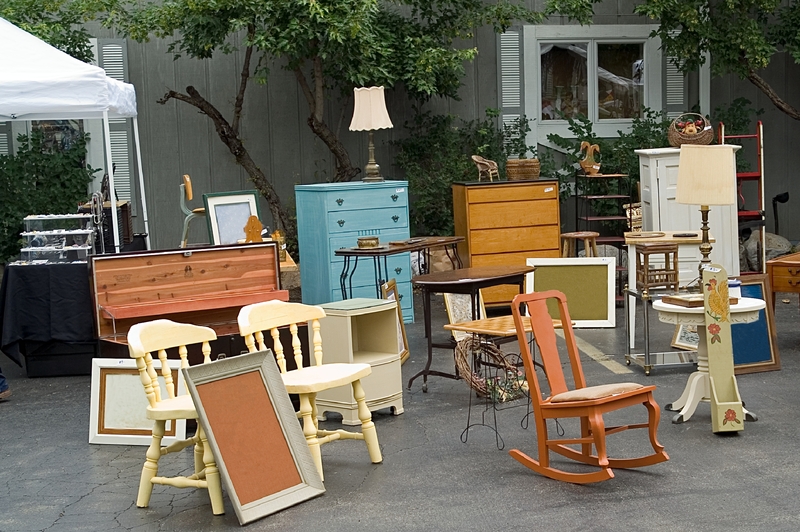Transforming Old Pans into Recycled Materials: A Comprehensive Guide
Old pans and cookware often find themselves relegated to the back of kitchen cabinets or tossed out with the trash. Unfortunately, this not only creates unnecessary waste but also squanders valuable resources. Transforming old pans into recycled materials is an environmentally responsible practice that can yield surprising benefits. In this detailed article, we'll explore the many ways you can recycle old pans, the materials involved, the environmental impact, and creative reuse ideas. Whether you're a sustainability enthusiast or looking to clear out the clutter, this guide will help you make the most of your battered cookware.

Why Recycle Old Pans?
Many people overlook the importance of properly disposing of or recycling kitchenware. Transforming outdated pans into recycled products supports environmental conservation, reduces landfill burden, and even opens doors to creative DIY possibilities. Before delving into the process, let's understand why recycling pans is crucial:
- Resource Conservation: Repurposing the metals and materials in cookware minimizes the need for raw material extraction.
- Waste Reduction: Recycling helps lower the volume of waste sent to landfills.
- Energy Savings: Creating new products from recycled metals typically uses less energy than processing new ores.
- Pollution Prevention: Proper recycling can prevent toxic substances (like coatings or Teflon) from contaminating soil and water.
The Different Types of Pans and Their Materials
Understanding the types of pans in your kitchen and their material composition is the first step in effective recycling. Here's a rundown of common cookware materials:
- Stainless Steel: Non-corrosive, durable, and highly recyclable.
- Aluminum: Lightweight, excellent conductor of heat, and easily repurposed.
- Cast Iron: Heavy-duty and 100% recyclable.
- Copper: Excellent for heat distribution and valuable in recycling streams.
- Non-stick (Teflon-coated): These require special handling due to chemical coatings.
- Anodized Aluminum: Treated for durability but still mainly composed of recyclable aluminum.
How Are Old Pans Typically Disposed Of?
Traditionally, old cookware ends up in landfills. However, many communities have specialized recycling programs or metal-processing facilities ready to divert these items from the waste stream. Unfortunately, not all municipalities accept cookware in regular curbside recycling due to their size or composition, especially when featuring plastic handles or non-metal parts.
Steps for Recycling Old Cookware
Transforming used pans into recycled goods involves several stages. Here's a comprehensive process:
1. Assess the Pan's Condition
- If the pan is still usable, consider donating it to shelters or thrift stores.
- If the pan is beyond repair, proceed to recycle it properly.
2. Prepare the Pan
- Remove any plastic, rubber, or wooden handles where possible. These materials often aren't recyclable with the metals.
- Scrub off excessive food residue or grease. While most recycling plants can handle some residue, cleaner pans reduce contamination risks.
3. Identify Local Recycling Options
- Look for metal scrap yards that accept household cookware.
- Check with municipal waste facilities for special drop-off days for metal items.
- Some cookware brands offer take-back or recycling programs--check with the manufacturer for details.
4. Special Considerations for Non-stick Pans
- Pans with Teflon or ceramic coatings may require special handling due to chemical content.
- Many metal recyclers accept non-stick pans, but you should check local requirements first.
- Do not incinerate non-stick pans as the fumes are hazardous.
5. Drop Off or Schedule Pickup
- Once cleaned and sorted, drop off your pans at an approved recycling center or schedule a scrap metal pickup if available in your area.
The Recycling Process: What Happens Next?
After you've brought your old pans to a recycling facility, they embark on a fascinating transformation journey:
- Sorting: Metals are sorted by type (aluminum, steel, copper, etc.).
- Melting: The sorted metal is fed into furnaces and melted down at high temperatures to create a pure, reusable raw material.
- Purification: Any remaining impurities are removed to ensure the quality of the recycled product.
- Forming: The purified metal is cast into new forms--such as rods, sheets, or ingots--which are later turned into new pans, car parts, electronics, or building materials.
Creative Ways to Repurpose Old Pans
While recycling is a fantastic solution, another innovative approach to reducing cookware waste is to repurpose old pans into new, functional, or decorative items. Here are some imaginative do-it-yourself ideas:
1. Planters and Garden Decor
- Drill holes for drainage and fill pans with soil to create unique planters.
- Use large pans as bases for bird baths or garden sculptures.
2. Wall Art and Clocks
- Paint or embellish pans and hang them as rustic wall decor.
- Convert a small frying pan into a quirky kitchen clock.
3. Organizers and Storage
- Mount pans on kitchen walls to hold utensils, spices, or towels.
- Use deep pots or pans as holders for art supplies, tools, or craft materials in the workshop.
4. Candle or Incense Holders
- Create safe bases for candles, incense, or mini tabletop bonfires, especially with cast iron or heavy-duty materials.
The Environmental Impact of Recycled Pans
Why is recycling old cookware so impactful? Here are the major environmental benefits:
- Reduces Mining: Less need for new metal mining reduces land degradation, deforestation, and water pollution.
- Conserves Energy: Recycling aluminum, for instance, saves up to 95% of the energy required for producing new aluminum from ore.
- Minimizes Greenhouse Gases: Lower energy use also means fewer emissions of harmful greenhouse gases.
- Extends Landfill Life: Diverting heavy, bulky items like pans helps prevent landfill overflow.
Each pan recycled is a small but significant step towards a more sustainable planet.
Tips for Curbside Recycling and Donations
- Check with your local recycling guidelines for cookware--some only accept certain metals.
- If possible, remove non-metal parts before recycling.
- Research charities, schools, or shelters that might benefit from lightly used pans.
- Consider community swap meets or online platforms, like Freecycle, to extend the life of good cookware.
Common Questions About Recycling Old Cookware
-
Can you recycle pans with plastic handles?
Yes, most scrap yards will require you to remove plastic or wooden handles first. Check your local guidelines. -
What about non-stick pans?
Non-stick coatings may limit recycling options. Always check with your recycling center or manufacturer for specific instructions. -
How do I know if a pan is recyclable?
Most metal pans are recyclable, even rusty ones. Seek advice if unsure by contacting your local center. -
Is there a market for recycled pans?
Yes! Recycled metals are in high demand for manufacturing new products ranging from kitchenware to automotive and construction materials.
Brands and Initiatives Supporting Cookware Recycling
Several companies now play an active role in transforming old pans into recycled materials:
- TerraCycle: Partners with brands to offer mail-in recycling for cooking products.
- GreenPan: Accepts old pans (of any brand) for sustainable recycling when you purchase new cookware.
- Local scrap metal recyclers: Offer convenient drop-off services for unwanted pots and pans.
These initiatives promote responsible consumption and circular economy principles in the kitchen goods industry.

Conclusion: Make Your Kitchen Greener Today
Transforming old pans into recycled materials is more than a trend--it's an essential part of sustainable living. By recycling used cookware or giving it a second life through creative projects, you contribute to resource conservation, reduce environmental impact, and even inspire others to join the reuse-and-recycle movement.
Before you throw away that battered frying pan or rusted pot, consider all the powerful possibilities recycling unlocks. It's a small action that, together with millions of others, reshapes the future--one pan at a time.
Further Resources and Inspiration
- Earth911: Search for local recycling options and advice.
- TerraCycle: Find specialized recycling programs for non-traditional items.
- Freecycle Network: Give away or find used cookware in your area.
- EPA Recycling Basics
Start transforming old pans into recycled materials today--your kitchen, your community, and the planet will thank you!